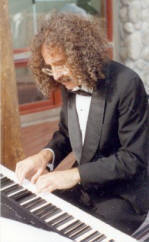
The War Prayer
by Mark Twain
Adapted by Orfeo, from “The War-Prayer,” in Europe and Elsewhere
Questions for Discussion: A Guide for Teachers and Moderators
Like all great literature, The War Prayer is complete unto itself. The only purpose for the following questions is to serve as focal points for discussion. This is by no means an exhaustive list; you are welcome to use this as a model for selecting and creating your own questions that are appropriate for the audience you represent.
The questions are divided into three sections: Before, During, and After. Before primarily covers background information that may enhance an understanding of the significance of the work. During focuses on aspects to look for that might otherwise be missed. After raises questions that might reasonably evolve after experiencing the story.
Please be forgiving if some questions seem trite and obvious. My personal experience is that all of us, myself included, can easily confound and amaze others with the large educational gaps we all possess. Please forgive such questions, if for no other reason, for the sheer joy some of us have in discovering new information, and the joy we experience in sharing our knowledge with others.
The presentation of the story takes about 15 minutes. The suggested format for a typical classroom “hour” is to take ten to fifteen minutes to discuss the “Before;” fifteen minutes for the story, and the remainder of the class time to discuss the “After.”
Before
1. Who was Mark Twain? Was that his real name?
2. When did he live?
3. What else did he write?
4. Were any of his writings made into movies? Musicals? Plays?
5. When did he write The War Prayer? When was it published and why?
6. Why did he write The War Prayer?
7. What famous quote grew out of his experience in publishing The War Prayer?
8. What was the longest declared war the United States ever fought? The shortest?
9. What was the longest undeclared war the United States ever fought? The shortest?
10. What differences in attitude toward war and peace exist among different countries, cultures, and religious groups?
11. Vocabulary: “patriot oratory”; “cyclones of applause”; “invoke”; “beseech”; “fervid”; “rash spirits”; “battalions”; “martial”; “invocation”; “clarion”; “pleading”; “supplication”; “benignant”; “invincible”; “imperishable”; “cataract”; “ghastliness”; “ascend”; “fervent”; “uncanny”; “smote”; “import”; “supplication”; “ponder”; “invoke”; “compact”; “pregnant”; “unfriended”; “travail”; “beset”; “contrite”; “lunatic”.
During
1. What is the mood of the story at the beginning? Does the mood of the story change in the middle? During the end?
2. What is the pace (how fast it seems to move along) of the story at the beginning? Does the pace of the story change in the middle? During the end?
3. Is there anything in the story that tells where it takes place?
4. Is there anything in the story that tells when it takes place?
5. Who is the person telling the story?
6. How does the story make you feel during the beginning, the middle, and the end?
After
1. What is the “war prayer?”
2. Was the Stranger a lunatic? Why?
3. What is War?
4. What is Peace?
5. Are there any alternatives to war?
6. Does The War Prayer have significance today?
7. Do you think Mark Twain should have been concerned about this story being published during his lifetime?
8. What difference if any would there be between a “war prayer” and a “peace prayer?”
9. If you were to write a war or peace prayer, what would you include? What would you exclude?
10. Do you have a different way of looking at war after seeing this presentation?
11. Do you have a different way of looking at violence in the news, in movies, and on television after seeing this presentation?
12. What would you/did you do when confronted with participating in a declared or undeclared military conflict?
Links for More Information
http://www.boondocksnet.com/ai/twain/war_prayer.html
http://www.boondocksnet.com/ai/twain/index.html
http://www.boondocksnet.com/centennial/sctexts/zwick99a.html